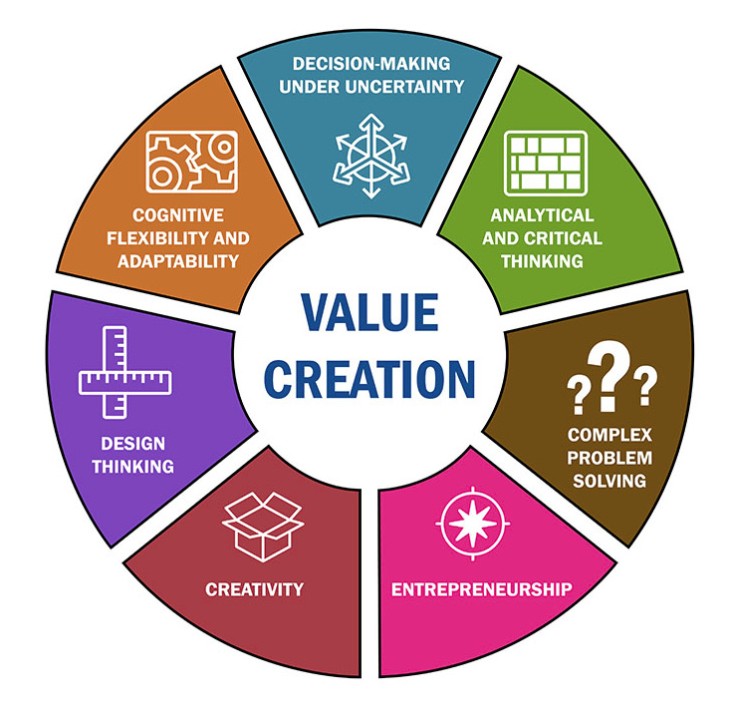Value Creation
What is Value Creation?
Definition:
Value creation refers to the process of generating and enhancing value for stakeholders through business activities, products, or services. It involves identifying and fulfilling the needs and desires of customers, employees, shareholders, and society at large, thereby contributing to overall prosperity and well-being.
Analogy:
Imagine value creation as a chef crafting a delicious and nutritious meal. Just as a chef combines ingredients skillfully to create a satisfying dining experience, businesses integrate various elements – such as innovation, quality, efficiency, and sustainability – to deliver products and services that meet customer expectations and enhance stakeholder value.
Further Description:
Value creation encompasses several dimensions that contribute to overall business success and societal impact:
Innovation and Differentiation: Businesses create value by developing innovative products, services, or processes that address unmet needs, solve problems, or provide superior experiences compared to competitors.
Customer Satisfaction: Value creation is closely tied to customer satisfaction and loyalty. By delivering high-quality products, excellent service, and meaningful experiences, businesses build lasting relationships and earn the trust of their customers.
Employee Engagement and Development: Engaged and motivated employees are essential drivers of value creation. Businesses invest in employee development, provide opportunities for growth and advancement, and create a positive work environment to foster productivity, creativity, and loyalty.
Financial Performance: Sustainable financial performance is a key outcome of value creation. Businesses generate revenue, profits, and returns for shareholders by delivering products and services that customers are willing to pay for, while effectively managing costs and resources.
Social and Environmental Responsibility: Value creation extends beyond financial metrics to encompass social and environmental impact. Businesses strive to operate ethically, minimize negative externalities, and contribute positively to society through responsible business practices, philanthropy, and environmental stewardship.
Why is Value Creation Important?
Value creation is essential for sustainable business growth, competitiveness, and long-term viability. It drives innovation, customer satisfaction, employee engagement, and financial performance, while also promoting social and environmental responsibility.
Key Principles:
Customer-Centricity: Successful value creation begins with a deep understanding of customer needs, preferences, and behaviors. Businesses must continuously listen to and engage with customers to deliver relevant and meaningful solutions.
Continuous Improvement: Value creation is an ongoing process that requires continuous learning, adaptation, and improvement. Businesses must embrace change, challenge the status quo, and strive for excellence in all aspects of their operations.
Stakeholder Alignment: Effective value creation involves balancing the interests of various stakeholders, including customers, employees, shareholders, suppliers, and communities. Businesses must prioritize stakeholder relationships and seek win-win outcomes that benefit all parties involved.
Examples and Applications:
- Apple Inc. creates value through product innovation, design excellence, and customer experience, driving customer loyalty and market leadership in the technology industry.
- Patagonia demonstrates value creation by integrating sustainability into its business model, producing high-quality outdoor apparel and promoting environmental activism.
- Google focuses on user satisfaction and innovation, continuously improving its search engine algorithms, online services, and advertising platforms to deliver value to users, advertisers, and shareholders.
Key Takeaways:
- Value creation is the process of generating and enhancing value for stakeholders through business activities, products, and services.
- It involves innovation, customer satisfaction, employee engagement, financial performance, and social responsibility.
- Successful value creation requires customer-centricity, continuous improvement, and stakeholder alignment.
- Examples include companies like Apple, Patagonia, and Google, which demonstrate excellence in creating value for customers, employees, shareholders, and society.
Table of Contents





